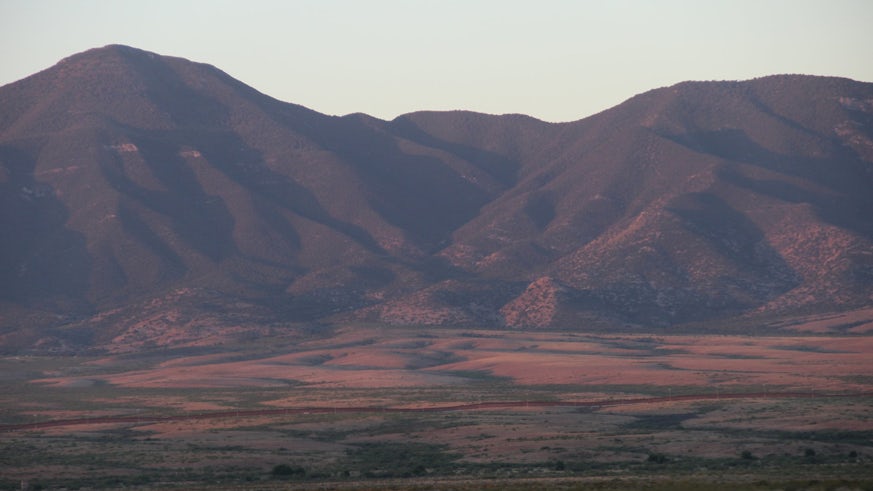PhD Insights: Understanding the evolution of riparian forests in Arizona
18 November 2019

PhD student Romy Sabathier shares insights from her recent fieldwork in Arizona, where she studied the impact of climate change and water stress on the evolution of riverside forests.
Romy Sabathier started her PhD in the School of Earth and Environmental Sciences in 2018. Her project is centered on the evolution of riparian forests in arid regions, with a special focus on the connection between water availability and vegetation communities. It will help to understand the impact of climate change and increased water stress on riparian forests, providing crucial information to improve the management of these ecosystems.
Romy recently spent a month in Fort Huachuca, South Arizona, to study the response of different zones to climate-controlled water availability. This area is home to a wide range of ecosystems and vegetation, thanks to a variety of landscapes icnlduing an arid valley, mountain range, and the San Pedro river. With access to riparian forests, arid grasslands and conifer-oaks forest, it was the perfect place for Romy to further her research.
Despite having to wake up at 4am every day to avoid the heat of the Arizona desert, this fieldwork allowed me to collect significant data for the next step of our research and to get a better understanding of this highly diverse corner of the world.

She says: 'I used remote sensing and satellite imagery analysis to gather detailed information on vegetation health and extent, as well as hydrology data on rainfall, streamflow and groundwater depth.
'The various ecology metrics and wood samples that I collected will be used to analyse forest health and functioning over recent decades in Arizona and California. This will allow me to detect and assess the response of this ecosystem to drought stress, as well as other potentials threats and stressors.
Romy's work in Fort Huachuca will be shared with the local military base to help them manage their riparian forest and canyons in the face of climate change.
If you would like to find out more about her PhD, please contact Romy at sabathierr@cardiff.ac.uk.
Share this story
For more information, visit the Water Research Institute website.
